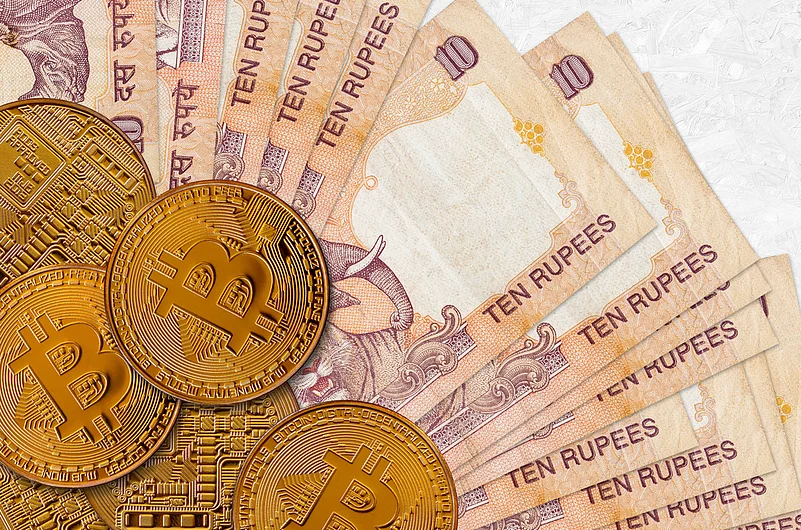Indians have been among the biggest investors in cryptocurrencies in the world. There are an estimated 15-20 million crypto users in India. Investors are now keenly awaiting the cryptocurrency bill, which has been introduced in Parliament in the Winter Session.
One of the reasons of high uptake of cryptocurrencies in India is that the process of buying and selling them is easy, but is it as easy as it sounds?
We look at the process of buying and selling crypto coins in India and whether it is as simple as it looks.
Crypto Transactions
To start transacting, the first step is to register with an Indian cryptocurrency exchange like WazirX or Coinswitch Kuber. Next, you need to fulfil the know your customer (KYC) requirements. Once you are done with the KYC registration, you will be able to buy and sell cryptocurrencies.
Just like a bank account, a cryptocurrency wallet is a digital application that helps you store and retrieve your cryptocurrencies. A crypto wallet has a private key that is known only to the user and a public key, which is like an address and serves to send the crypto to the wallet.
Buying Cryptocurrencies: Ever since the Supreme Court struck down the 2018 ban by the Reserve Bank of India (RBI) on rupee-crypto transactions in March 2020, things are comparatively easy when it comes to buying cryptocurrencies in India. However, not all banks allow their customers to link their accounts and transfer money to crypto exchange accounts. If your bank doesn’t allow that, you will have to resort to peer-to-peer (P2P) lending.
You can deposit Indian rupees in a crypto exchange account in multiple ways. You can either use National Electronic Funds Transfer (NEFT), Immediate Payment Service (IMPS) Unified Payments Interface (UPI), or a payment gateway. “You can deposit the INR via internet banking or a third-party wallet or you can use the P2P method for deposit,” says Bandhul Bansal, founder, Finstreet, a financial coaching firm. It is important to remember that you cannot use cash to purchase cryptocurrency.
Once you have money in your account, you can use it to purchase any cryptocurrency.
Selling Cryptocurrencies: “You can sell the cryptocurrency you hold in rupee terms through exchanges only and then withdraw it into your bank account associated with your crypto trading account,” says Bansal.
“It can either be instant or take up to two working days for the funds to reach your bank account depending on the amount,” says Sanghvi.
Is It That Simple?
As mentioned earlier, the process has become easier after the Supreme Court lifted the ban on rupee transactions for cryptocurrencies. However, not all banks are on board as of now.
“After the Supreme Court lifted the RBI ban in March 2020, things are comparatively easy. Some banks are still not friendly when it comes to allowing their customers to transfer money on Crypto exchanges,” says Bansal.
“There are a lot of grey areas when it comes to cryptocurrency transfers. While some banks are allowing their customers to transfer funds to cryptocurrency exchanges, other banks do not allow it. For example, SBI blocked the receipt of funds by crypto bourses on its UPI platform. Also, some banks that are allowing it are offering the facility to select clientele. It is not open for all customers. We can only get more clarity when the regulations are in place,” said a banking expert, on the condition of anonymity.
Moreover, you cannot withdraw cash from your crypto wallets with exchanges as they are only trading platforms. When you want to encash your cryptocurrencies, you would need to select the INR option and send it to your savings account in your bank. Once there, you could withdraw it as cash from your bank or ATM.
There could also be a difference in the price at which you can buy the cryptocurrency, depending on the exchange with which you have an account.
“Some exchanges offer closed order book facility, which means you get a single price, while some offer open order book, which means that your order is matched with (the price of) another buyer or seller and you get that price,” says Naimish Sanghvi, founder, Coin Crunch India, a cryptocurrency media website.
Under the open order book, you could compare and negotiate prices. In case of closed order book, the exchange is in full control of liquidity and sets a fixed price for assets. Hence, there is no scope for negotiation here.
However, remember that even though the process is easy, you need to have a basic understanding of how cryptocurrencies work and do proper diligence before investing in cryptocurrencies.


























